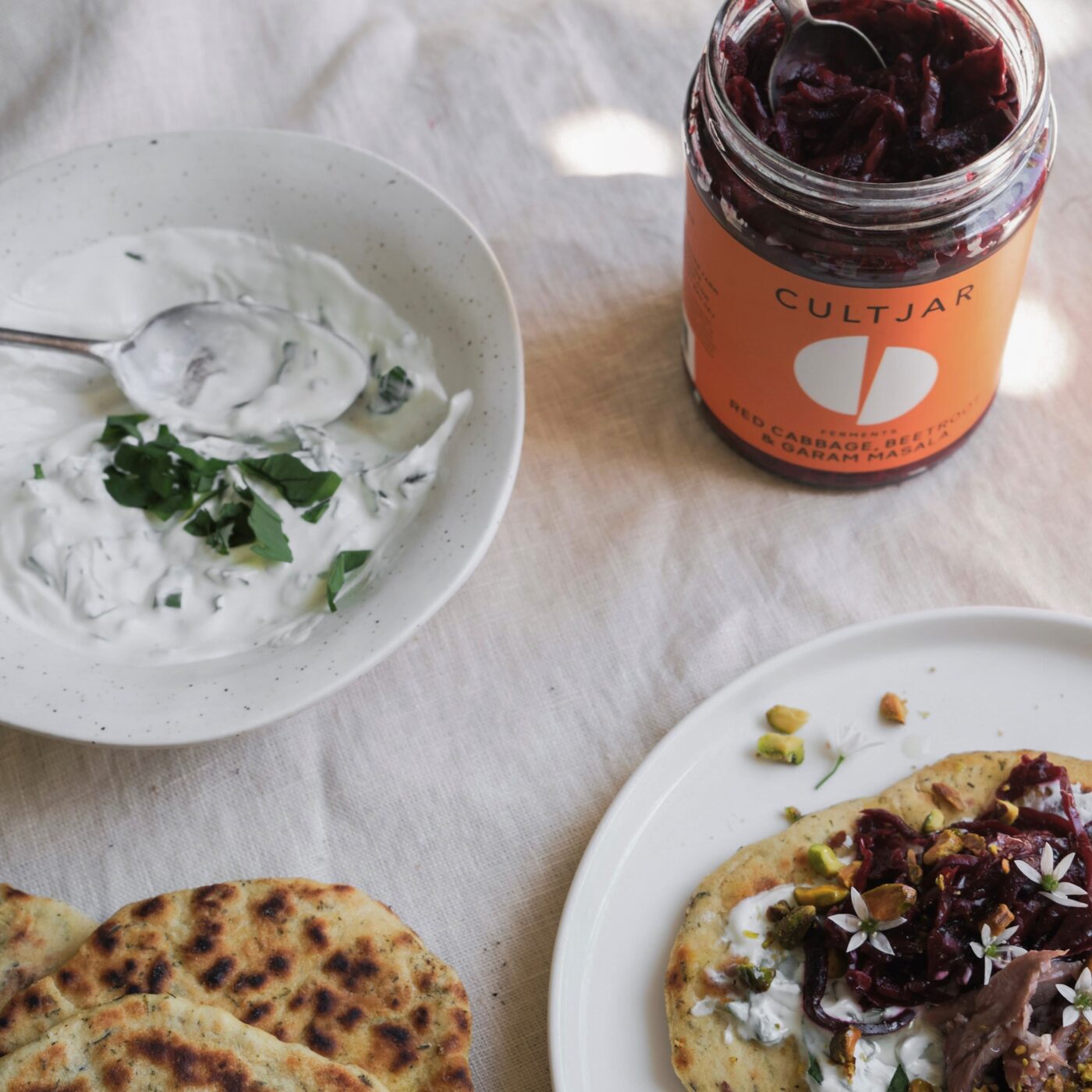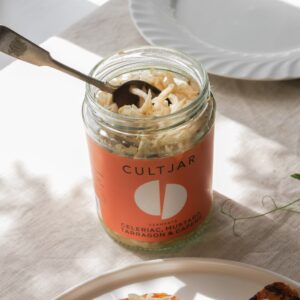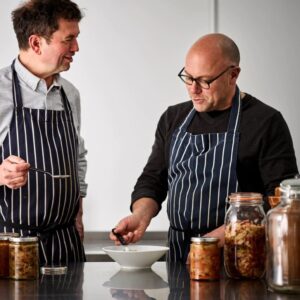You have no items in your cart. Want to get some nice things?
Go shopping
Peter has amassed almost three decades of experience in hospitality and food retail, and spent much of this tenure working beside the late Sir Terence Conran. Throughout his successful career, Peter has owned and managed several renowned restaurants, spent time working alongside top culinary talent and was named Independent Hotelier of the Year in 2013.
Adding another string to his bow, Peter founded CULTJAR, a collection of ferments and pickles which aim to preserve the seasons. CULTJAR’s range is handmade at Worminster Farm in Somerset and blends traditional and contemporary preserving techniques to create a rich depth of flavour and minimise food waste. While kimchi and sauerkraut have become more familiar to many of us in recent years, CULTJAR is inspired by some of the world’s leading restaurants which are experimenting with a wider range of fermented flavours. From Thai Yellow Curry Carrots to Pink Turnips, CULTJAR has a whole host of interesting tastes to explore. In this conversation, we share Peter’s approach to slow food at his Somerset smallholding.
In conversation with Peter Prescott of CULTJAR


Can you share your story and how CULTJAR came to be?
Having worked in the exciting London restaurant and food retail world for almost thirty years, much of my day-to-day focus has been on two key areas – fresh and immediate. I’ve had the great pleasure to work with a multitude of talented chefs that make it their preoccupation to source the best quality freshest ingredients and then apply their creativity before immediately serving delicious food to expectant diners.
Now, I’m applying that same energy to preserved and slow. CULTJAR is all about prolonging the seasons and preserving ingredients. While we still chase immediacy in terms of getting the freshest and best quality ingredients to our kitchen, we then slow things down. This is when natural or wild fermentation starts and when we combine herbs, spices and seasonings before allowing time to do its thing – bringing new characteristics and depth of flavour to these already excellent ingredients.
I’ve always been fascinated by the idea of high-quality food in jars – from the obvious Seville orange marmalade to touring around France and enjoying lovely pâté and rillettes or soupe de poisson and even whole meals, such as cassoulet, confit de canard and coq au vin, all in wonderful glass jars. Perhaps it’s the joy of intense flavours combined with the convenience of popping the lid and immediately enjoying something delicious.
Can you set the scene for your location at Worminster Farm in Somerset?
Our smallholding was formerly a Victorian dairy farm that ran into financial difficulty and was sold off in parts. The hamlet is now entirely surrounded by esteemed food producers from the excellent Brown Cow organic yogurt makers to rare breed beef, sheep and chicken farmers, not to mention cheesemakers, charcuterie makers and fantastic market gardens.
What do you think has contributed to the increased interest in fermented foods?
I’d like to think it is due to the taste which is what attracts me, along with the benefits for our food systems and the environment. However, it is probably more of a full answer to say that people like Tim Spector (co-founder of ZOE), Hugh Fearnley-Whittingstall and the late Michael Mosely have done an awful lot of good to attract people to fermented foods.
Can you share your favourite food pairings for some of your most popular CULTJAR ferments?
This is like asking which is my favourite child. I love them all equally! That being said, I do tend to eat our Red Cabbage, Beetroot & Garam Masala ferment with almost everything – from a delicious accompaniment to roast red meats to goats cheese or Cheddar, in a sandwich or alongside some charcuterie, it works very well with all of these.
Often people misunderstand ‘slow’ for navigating life at a snail’s pace, rather than ‘considered’. How do you balance the pressures of business ownership with the principles of slow, seasonal living?
This is a difficult one but not something that is impossible – it’s something that will always be an evolving challenge. I’d mainly say that the company needs to have strong brand columns and minimum no negotiable standards to help guide all of our activities.
What do you think we can do to inspire more people to embrace slow food and seasonal living?
Stop, or at least aim to reduce, our reliance on supermarkets – they are the main reason for the problems in our food systems. Instead, seek out small independent producers and markets.
What are your ambitions for the future of CULTJAR? Anything upcoming that you’re particularly excited about?
We’ve just launched a new range of four completely new recipe organic ferments in partnership with River Cottage.
You can explore CULTJAR’s range of ferments and pickles via their online shop.
Not far from CULTJAR’s Worminster Farm home, you’ll find Westcombe Dairy. For more inspiration from another Somerset slow food producer, discover our conversation with Tom Calver.
